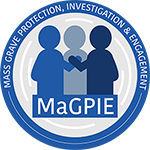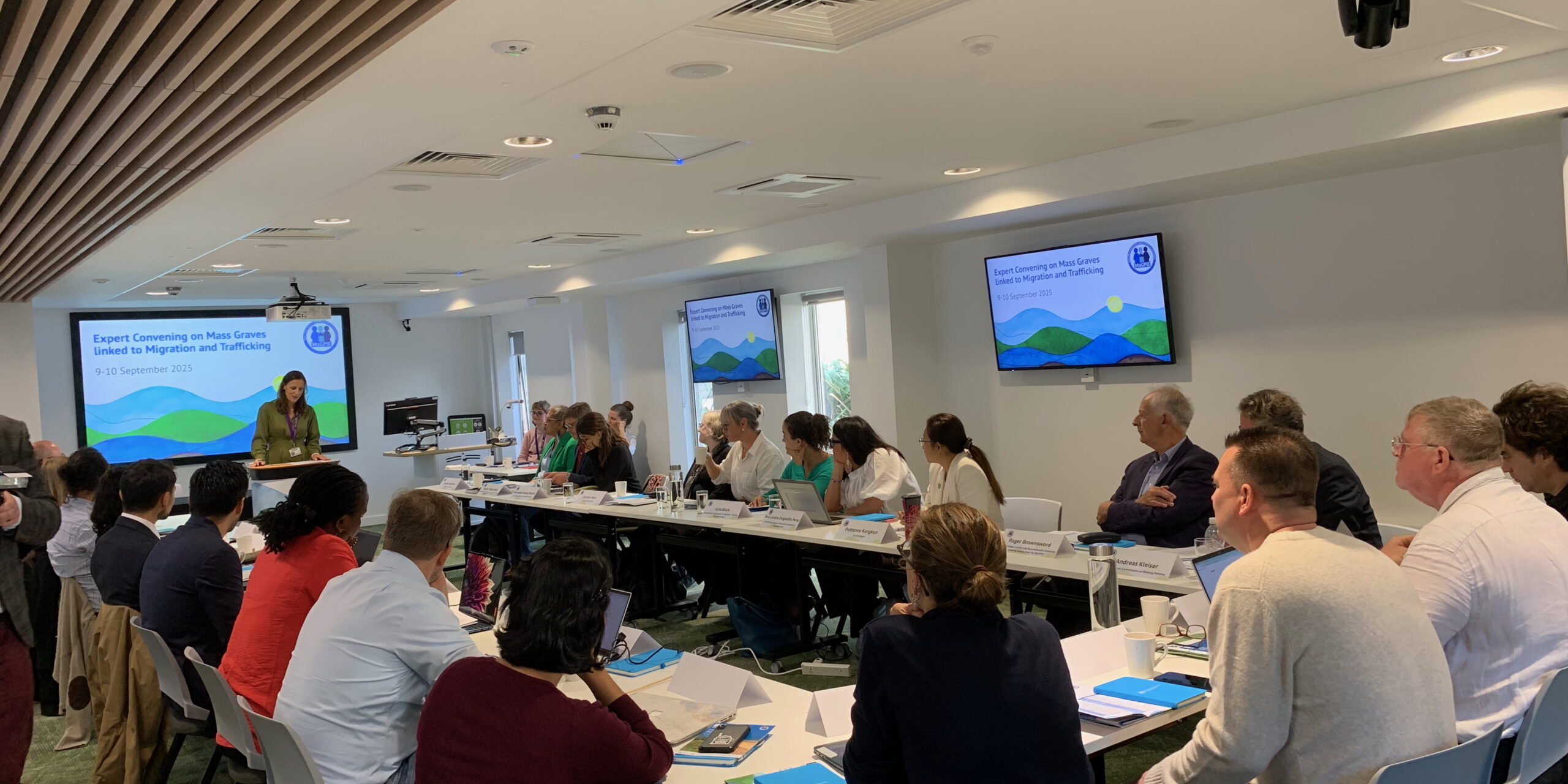Sousar Takhaka was the first panellist to speak at our Mass Graves in the Context of Migration and Trafficking round-table in September. His contribution powerfully captured the many challenges faced by families searching for loved ones in such difficult and complex circumstances. It set the tone for the discussions that followed throughout the convening, and we felt his words should be shared in full. With great thanks to Sousar for allowing us to bring his words to a wider audience:
Your work matters. Not just on a theoretical or legal level, but to families like mine.
Creating space for these conversations—for complexity, for testimony, for cross-disciplinary reflection—is not symbolic. It’s necessary. And I’m genuinely grateful to be part of it.
I’m speaking today first and foremost as a brother—someone who lost a loved one and never got answers. But I’m also here as part of a growing effort—AFOMAS—that was created by families like mine who are searching for truth, and for change.
My brother Diaa disappeared in 2014, while crossing the Mediterranean in search of security.
For weeks, we waited for news.
For months, we searched—through social media, hospitals, NGOs, unofficial contacts.
And now, more than ten years later, we still don’t have an answer.
No confirmation. No grave. No closure.
When you lose someone this way, it’s not just about absence.
It’s about uncertainty. It’s about silence.
And it’s about the long-term damage that silence causes – not just to families, but to justice.
That’s what led me to join AFOMAS, the Association of Families of Missing Asylum Seekers.
We often hear that families have a “right to know” – and in legal terms, that’s true. It’s in the ICRC guidelines, the UN frameworks, the Geneva Conventions.
But in practice, especially for the families of missing asylum seekers, the right to know feels more like a hope than a right.
No one tells you where to ask.
No one explains who is responsible.
Even when families are ready to offer information or DNA, the entities they reach out to often don’t respond. It’s not just hard to get help – it’s hard to even be acknowledged.
You call embassies and get transferred endlessly.
And slowly, your hope becomes a burden – because it takes energy to keep believing that someone will eventually answer.
Every human being deserves dignity in death. That includes recovery, identification, and some form of burial that their family can live with.
But even here, there’s a hidden barrier no one talks about.
One of our new members at AFOMAS told us about a hospital in Greece. He’d been searching for his brother and was told by a doctor that several unidentified bodies were held in cold storage – possible victims of shipwrecks.
The doctor was willing to compare DNA, but warned him: If there’s a match, the body becomes your legal responsibility. That may include repatriation costs, burial costs, thousands of euros. The hospital cannot cover that.
And so the family faced an impossible question:
What if we find him but can’t afford to bring him home?
Is it better not to know?
This is not just a technical or legal issue. It’s a moral contradiction that many families are forced to live with.
There are so many barriers that make families disappear alongside their loved ones.
Poor communication. Language gaps. Lack of access to legal documents. No translation. No funding for DNA tests. No psychological support.
And in many cross-border cases – no one takes ownership of the search.
Families are left behind – not just emotionally, but structurally.
Even those willing to engage are excluded.
At AFOMAS, we see this every day. Families who don’t know how to send a DNA sample. Families who don’t know if a grave has already been found. Families who wonder if their case is even “official.”
This invisibility isn’t just a result of chaos. In many situations, it functions as if it were by design.
We are not asking for charity. We are asking to be included.
Our testimonies, our memories, our DNA – these are not optional in forensic work. They are essential. But in most migration-related investigations, families are treated as outsiders. Or as people who are there to grieve, but not to contribute.
We need a framework that centres us from the beginning.
That means consent procedures.
That means regular updates.
That means being allowed to say: We want to know. We want to be involved. We have something to offer.
Forensic work in the context of mass graves is not just about technical recovery. It’s about trust, transparency and accountability.
In our work with families, we often see confusion around what has been done.
Sometimes remains are recovered, but no one is sure whether identification followed.
Sometimes families hear that something happened – but they were never contacted or included.
We need independent oversight and depoliticized procedures. Because otherwise, the process risks becoming something that families can’t trust – more about closing files than opening truth.
One of the most frustrating things for families is that there is no international system that connects the dots.
No centralized missing migrant’s database.
No shared DNA protocol.
No automatic communication between countries where bodies are found and countries where people disappear.
This isn’t just a technical gap – it’s a political silence. And it must be addressed.
At AFOMAS, we believe there needs to be a family-accessible, cross-border system. A space where families can register their missing loved ones, offer DNA, and receive updates – no matter where the disappearance happened.
AFOMAS was created because of this silence. We are a family-led association made up of those who have lost loved ones along displacement routes. Some of us are also survivors ourselves.
We advocate for truth, justice, and policy change.
We believe that lived experience is expertise.
We are not here to be consulted after a decision has been made.
We want to shape the process from the beginning. Because only then will justice feel real.
I am here today not just because my brother disappeared.
But because what happened to him, and to us, is happening to many others.
And because I believe that institutions can change, if they are willing to listen deeply and act meaningfully.
So if we are serious about engagement with mass graves in the context of asylum and trafficking, we need more than recovery missions.
We need:
- Clear access to information for families
- DNA processes that don’t create new burdens
- Cross-border coordination that works
- And above all: family involvement not as a courtesy, but as a right
I hope that today’s conversation is not only a reflection, but a step toward structural change.
Because families are not just waiting to be told the truth. We are ready to help build the systems that will deliver it.







